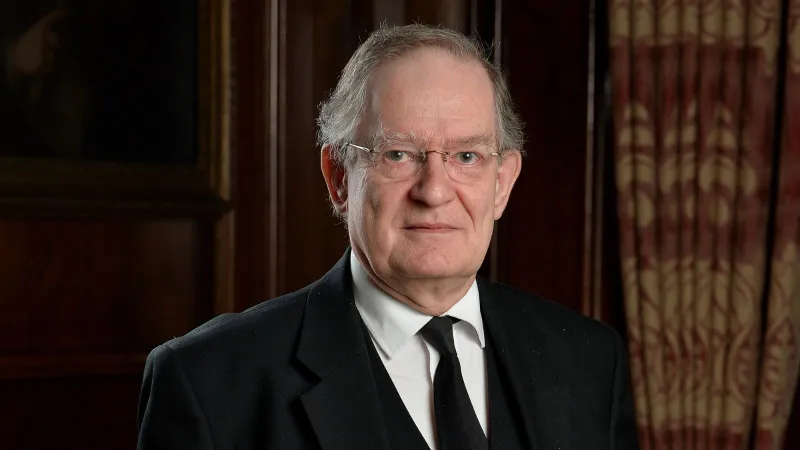In this 300th anniversary year of The 1723 Constitutions, Dr Ric Berman looks at how Freemasonry became an effective diplomatic tool in France.

With a population of around 20 million in 1700 and 28 million in 1790, France was one of the more dominant countries in Europe, dwarfing England, which had a mere five million people in 1700 and around eight million by 1790.
France also led Europe in the arts, culture and fashion, but it began to falter elsewhere as the writings of John Locke, Isaac Newton and others moved to the cutting edge of intellectual thought. Enlightenment thinking and scientific ideas became fashionable and were absorbed by Europe’s elites, with a consequential impact on religious and political thought.
Newton’s theories demonstrated that apparently impenetrable scientific problems could be solved by reason, and the thoughts of those promoting religious tolerance struck a chord with those Europeans opposed to religious diktat and an absolutist Catholic Church. Moreover, Britain’s example of a constitutional monarchy answerable to an elected parliament was balm to those living under autocratic and absolutist regimes.
Over time, Enlightenment ideas gained impetus across Europe, not least through Freemasonry, which was embraced by the elites in many of Europe’s capital cities, from Paris to Vienna.
Although there is limited documentary evidence, it is generally accepted that two Masonic lodges were established in Paris in 1726 and that these were followed by many others, including four in 1729 alone. Freemasonry became popular across France with Lodges found in Valenciennes, Lyons, Rouen, Le Havre, Pau, Nantes, Caen, Bordeaux, Aubigny, Avignon, Montpelier, Marseilles and Bayonne.
A Scots Master degree had been worked in London in 1733, perhaps earlier. This and other higher and/or knightly degrees took off in France and were developed further, particularly during the following three decades. France embellished England’s three degree system, creating a step-ladder in which candidates could be raised to ‘knights’ and ‘chevaliers’, rather than be linked allegorically to stonemasons. The approach aligned with the medieval chivalric orders with which the French and other European aristocrats were familiar.
It is hard to know precisely what influence Freemasonry exerted on social and political developments in France and in Europe more widely. However, the speed at which Freemasonry was adopted and the extent to which it spread suggest that its philosophical tenets and allegorical ritual had considerable appeal.
A Grand Lodge of France was probably not established formally until June 1738, albeit that a decade earlier French Freemasons recognised Philip, Duke of Wharton as their Grand Master. Wharton lived as an exile in France from 1728-29 and had, of course, served as Grand Master of the Grand Lodge of England in 1722-23.
He was succeeded by two other Jacobites: Sir Hector MacLean, raised to Lord MacLean in the Jacobite peerage; and Charles Radcliffe, the titular Earl of Derwentwater, who in 1716 had fled England after being sentenced to death for high treason. The sentence was carried out in December 1746 at Tower Hill following Derwentwater’s capture during the second Jacobite Rising of 1745.
But it was not only the French who established Lodges in France. Charles Lennox, 2nd Duke of Richmond, another former Grand Master, convened an English Lodge in France in 1734, the year he succeeded as Duc d’Aubigny. Lodge meetings were held at his grandmother Louise de Kérouaille’s house in Paris and in a private room at the Hôtel Bussy. Richmond also established a Lodge at his estate at Aubigny-sur-Nère, 25 miles south-east of Orléans.
Louise de Kéroualle had been sent to the English court by Louis XIV with the expectation that she would become one of Charles II’s royal mistresses and lobby in favour of French interests. She succeeded and was rewarded by Louis XIV with the Duchy of Aubigny, while Charles II made her Duchess of Portsmouth and granted their son the title of Duke of Richmond.

The run-up to the Lodge meeting at Aubigny is recorded in a letter to Richmond dated 23 August 1734 from Thomas Hill, a member of his household. Among other things, it emphasises how Jean Theophilus Desaguliers intended to alter the ritual to create a ‘greater air of antiquity and consequently make it more venerable’ and thus more appealing to its aristocratic audience:
I have communicated to the new, if I am not mistaken, right worshipful … Dr J Theophilus Desaguliers, your Grace’s command relating to the brotherhood of Aubigny sur Nère. I need not tell you how pleased he is with this further propagation of masonry… he immediately asked me if I had not Amadis de Gaula or some of the old Romances. I was something surprised at his question and begun to think as the house was tiled our brother had a mind to crack a joke. But it turned out quite otherwise. He only wanted to get a little of the vieux Gaulois in order to give his style the greater air of antiquity and consequently make it more venerable to the new lodge.
It became customary for Richmond to travel to France annually, and in September the following year he convened a Lodge in Paris once again:
They write from Paris that His Grace the Duke of Richmond and the Rev Dr Desaguliers (formerly Grand Masters of the Ancient and Honourable Society of Free and Accepted Masons and now authorised by the present Grand Master under his Hand and Seal, and the Seal of the Order) having called a lodge at the Hotel Bussy, His Excellency the Earl of Waldegrave, his Majesty’s Ambassador to the French King; the Right Hon the President Montesquieu; the Marquis de Lomaria; Lord Dursley, son of the Earl of Berkeley; the Hon. Mr Fitz-Williams; Messrs. Knight, father and son; Dr Hickman, and several other persons, both French and English, were present; and the following noblemen and gentlemen were admitted to the Order, viz., His Grace the Duke of Kingston; the Rt. Hon. the Count de St. Florentin, Secretary of State to his most Christian Majesty; the Right Hon. The Lord Chewton, son to the Earl of Waldegrave…
The standing of those attending underlines Freemasonry’s status as an effective diplomatic tool. The central figure was the Comte de Saint-Florentin, a senior advisor to Louis XV and the minister responsible for the Huguenots in France. He would have been an appropriate person to cultivate, and the concurrent initiation of the Duke of Kingston, and Earl Waldegrave’s eldest son, Lord Chewton, would have flattered him much as the Duke of Newcastle’s raising at Houghton Hall, Sir Robert Walpole’s country house, honoured the Duke of Lorraine a few years earlier.
A second key figure was Charles Louis de Secondat, Baron Montesquieu. A jurist and judge, he was a writer and political philosopher who developed the principle of the separation of constitutional powers, a radical concept in a Europe dominated by autocratic monarchies. Montesquieu was also a member of the French Academy of Sciences.
Montesquieu’s association with Freemasonry began with an introduction to Earl Waldegrave, a prominent English Freemason, later Britain’s ambassador to France. Waldegrave introduced Montesquieu to Lord Chesterfield, Britain’s ambassador to the Low Countries, who invited him to London where Montesquieu was presented at court, elected a Fellow of the Royal Society, and in 1730 initiated at the Horn Tavern Lodge.
Montesquieu’s progressive views on the separation of powers within government marked him out as a potential political ally for Britain in its quest to influence the French aristocracy and Louis XV’s Court.


